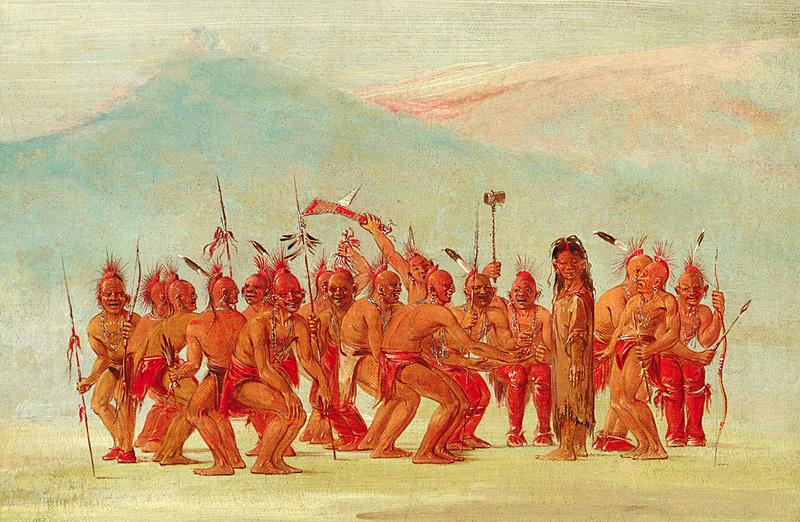Summary | Excerpt | Reviews | Beyond the Book | Read-Alikes | Genres & Themes | Author Bio

Critics' Opinion:
Readers' Opinion:
First Published:
Jan 2017, 272 pages
Paperback:
Sep 2017, 272 pages
 Book Reviewed by:
Book Reviewed by:
Rebecca Foster
Buy This Book
This article relates to Days Without End
The two main characters in Sebastian Barry's Days Without End, Thomas McNulty and John Cole, are white soldiers who at various points dress up as women for entertainment or disguise. They are thus surprised but bemused when they take part in the Indian Wars and encounter the Native Americans' winkte or berdache tradition of men who dress as women:
with the ease of men who have rid themselves of worry we strolled among the Indian tents and heard the sleeping babies breathing and spied out the wondrous kind called by the Indians winkte or by white men berdache, braves dressed in the finery of squaws. ...The berdache puts on men's garb when he goes to war, this I know. Then war over it's back to the bright dress.
Winkte is a shortened form of an old Lakota word, Winyanktehca, which roughly translates as "wants to be like a woman," while berdache comes from the French for a catamite, a boy who was kept for sexual favors. The tradition of men dressing as women and taking on the roles of women in peacetime is known in nearly two dozen different Native American tribes. It was first encountered by European traders and explorers in the seventeenth century, but may have been in existence for much longer. Chiefs and warriors kept winkte as sexual partners alongside their other wives, and they were sometimes believed to have special spiritual powers.

As white men's influence increased in the eighteenth and nineteenth centuries, missionaries and government agents tried to wipe out the winkte tradition, but even in the 1980s it was still being documented. The fact that the Great Spirit has no gender is often mentioned in defense, and various myths have arisen to explain how winkte individuals might come to be and what ritual roles they might serve. For example, here is one legend from The Spirit and the Flesh, by anthropologist Walter L. Williams:
Among the Arapahos of the Plains, berdaches are called haxu'xan and are seen to be that way as a result of a supernatural gift from birds or animals. Arapaho mythology recounts the story of Nih'a'ca, the first haxu'xan. He pretended to be a woman and married the mountain lion, a symbol for masculinity. The myth, as recorded by ethnographer Alfred Kroeber about 1900, recounted that "These people had the natural desire to become women, and as they grew up gradually became women. They gave up the desires of men. They were married to men. They had miraculous power and could do supernatural things. For instance, it was one of them that first made an intoxicant from rainwater."
In the 1990s, a convention of gay and lesbian Native Americans pushed for the adoption of a more positive, inclusive term than berdache, deciding on "Two-Spirit" to refer to anyone who does not fit into conventional male or female categories. The Two-Spirit tradition is now a part of the general Pride movement. However, historical terms still resonate: A transgender social organization in Fort Lauderdale, Florida calls itself the Winkte Club.
Picture of painting Dance to the Berdache by George Caitlin
Filed under Places, Cultures & Identities
![]() This "beyond the book article" relates to Days Without End. It originally ran in April 2017 and has been updated for the
September 2017 paperback edition.
Go to magazine.
This "beyond the book article" relates to Days Without End. It originally ran in April 2017 and has been updated for the
September 2017 paperback edition.
Go to magazine.





The House on Biscayne Bay
by Chanel Cleeton
As death stalks a gothic mansion in Miami, the lives of two women intertwine as the past and present collide.

The Flower Sisters
by Michelle Collins Anderson
From the new Fannie Flagg of the Ozarks, a richly-woven story of family, forgiveness, and reinvention.

The Funeral Cryer by Wenyan Lu
Debut novelist Wenyan Lu brings us this witty yet profound story about one woman's midlife reawakening in contemporary rural China.
Your guide toexceptional books
BookBrowse seeks out and recommends the best in contemporary fiction and nonfiction—books that not only engage and entertain but also deepen our understanding of ourselves and the world around us.